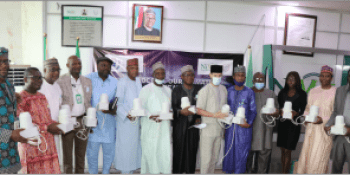Testing Burkina Faso's rural sector development plan through a CCAFS scenario process

22 specific recommendations, formulated by various stakeholders, have allowed Burkina Faso's rural sector development plan to become more sensitized to future uncertainties.
Burkina Faso is a predominantly rural landlocked country in West Africa, with 60-80% of its population employed in agriculture. It is one of the world’s poorest countries–ranked 183 of 187 in the Human Development Index.
The country is situated in the water-scarce and climate change-vulnerable Sahel region, leaving it particularly susceptible to food insecurity. The government reports that more than a third of the rural population is food-insecure. This rural challenge is further exacerbated by the high prevalence of endemic diseases such as malaria, which accounts for about 29 percent of child deaths each year.
We are not certain what a future under climate change will look like, but developing countries are most vulnerable to its impacts and will be worst affected. With this in mind, the government's National Plan for the Rural Sector of Burkina Faso (2016-2020) set out to "ensure food and nutrition security through the sustainable development of a productive and resilient agriculture, fisheries, and wildlife sector that is market-oriented and able to respond to the major challenges of rural development."
Using scenarios to ensure a robust plan
In order to test the robustness of this plan in the face of an uncertain future, a CCAFS scenarios process involving national experts and policymakers tested the National Plan against diverse socio-economic and climate scenarios up until the year 2050. This process allowed the plan to become more sensitized to future uncertainties, and led to 22 specific recommendations that were then translated into concrete climate change and climate-smart agriculture actions and integrated into the plan. Several key changes in the new plan focus on the empowerment of vulnerable smallholder farmers.
The process involved scenario workshops with the participation of key stakeholders from various ministries (agriculture, environment, livestock, economy and planning) in charge of formulating the National Plan, as well as researchers from various CGIAR Centers, national universities, farmers' organizations, NGOs and private sector actors. This resulted in the production of:
- Four downscaled national level scenarios specific to Burkina Faso.
- Descriptions and perspectives of short, medium and long-term implications of these country-scenarios.
- The translation of these perspectives into the plan’s overall objective and 22 specific recommendations.
- Several concrete actions to be included in the new plan.
Building capacity in use of future scenarios
Through participating in a series of scenarios workshops, the writing team of the new National Plan was trained in the scenario process, its usefulness and the relevance of its recommendations, which were largely taken into consideration during the formulation of the new plan.
With these concrete actions integrated into the National Plan, it is hoped that the development of Burkina Faso’s rural sector will lead to increased food security and resilience in the face of an uncertain future under climate change.
What's next?
Foresight processes such as the scenarios process described above are increasingly being used by a wide variety of actors all over the world to engage with possible futures under climate change. However, we are yet to understand the full range of factors that contribute to the effectiveness of the scenarios process in helping to formulate policy interventions, particularly in countries like Burkina Faso that are extremely vulnerable to climate change.
Questions that need to be further explored include: Do scenarios processes take place at the right time vis-a-vis policy and decision-making? If recommendations from scenarios processes are integrated into national policy, is this translated into a legal framework? If so, how successfully are the resulting laws implemented?
The Re-imagining anticipatory climate governance in the world's vulnerable regions (RE-IMAGINE) project builds on the CCAFS Future Scenarios project to address such questions and investigate ways in which foresight approaches can play a role in appropriate and effective modes of anticipatory climate governance in the world’s most vulnerable regions.
Made possible by the BNP Paribas Foundation’s ‘Climate Action Call’, the project is led by Utrecht University’s Copernicus Institute for Sustainable Development with Wageningen University & Research, the University of Oxford and the CCAFS Future Scenarios Project as project partners.
Read more:
- Project page: Scaling out scenario-guided policy and investment planning
- Info note: Formulation of a Robust National Rural Sector Program in Burkina Faso: What new themes have emerged from the socio-economic and climate scenarios process?
- Blog: Future Scenarios work informs climate and agriculture policies in seven countries
- Blog: Using future scenarios to design policy and research together in Burkina Faso
Charlotte Ballard is the Communications Officer for the RE-IMAGINE project, sister project of the CCAFS Scenarios Project, and is based at Utrecht University in the Netherlands. Lucas Rutting is a Scenarios and Policy Researcher at CCAFS. He is based at the Environmental Change Institute at the University of Oxford.



